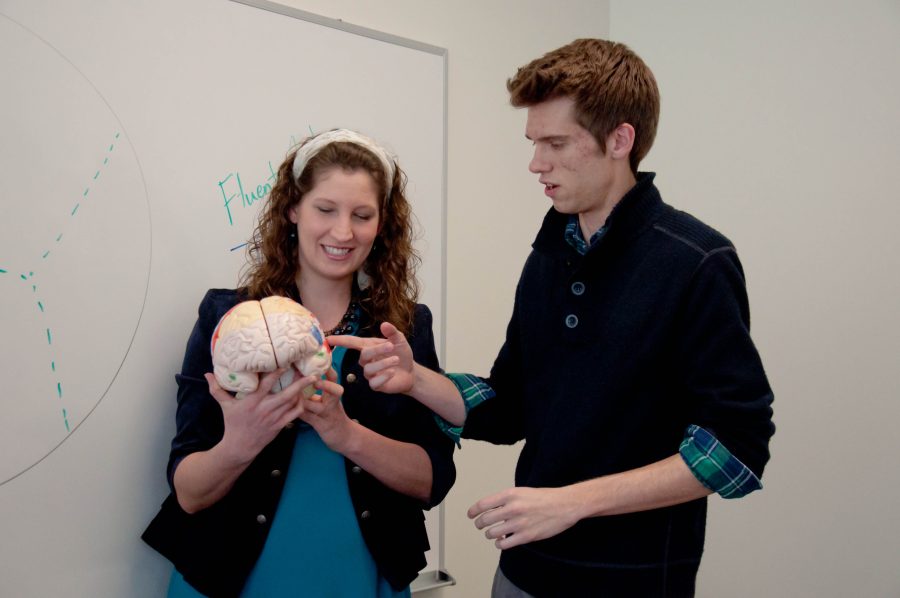Several of BJU’s communication disorders majors and their professors attended the South Carolina Speech-Language-Hearing Convention that took place Feb. 20 through 22. Held in Charleston, S.C., the convention is a yearly opportunity for both students and faculty to hear from experts and scientists in the field of communication disorders.
While at first you may think the communication disorders major focuses on speech disorders and irregularities, the field is in fact much broader than that. “We make communication itself possible,” explained Dr. David Eoute Jr., head of the communication disorders department.
The major prepares students to comprehensively diagnose speech problems and counsel patients as they solve significant speech, diction or hearing issues. The communication disorders field focuses on the medical and counseling aspects of communication, that make the rest of the communication fields possible. “Many of our students have personally known someone with a speech disadvantage,” said Ms. Hannah Benge, faculty member in the department of communication studies. “They have that personal contact and want to help those people.”
A crucial focus of the communication disorders major is the ability to impact the lives of people with speech disorders. “It may sound cliché, but I chose the major because I wanted to help people,” said Loren Crisp, a senior communication disorders major. “It is the perfect major for you to use your creativity and skills to practically help people.” Some of the careers that students in the major prepare for are speech pathology (specializing in therapy), audiology (specializing in hearing disorders) and accent training. “You can go into the medical field, a school setting or a business setting with this degree,” Eoute said. “There is a lot of science and research behind the major, but there is also a real interpersonal component built in as well.”
Eoute, certified speech- language pathologists Ms. Hannah Benge and Mrs. Kris Miller, and 12 juniors and seniors from the major attended the convention. “It is a great experience for students to gain exposure to research in the field and meet professionals and therapists,” Eoute said.
For the students who are nearing graduation, networking is a key highlight of the convention. “The purpose [of the convention] was to network with other speech pathologists in South Carolina,” Crisp said, “as well as to raise awareness of the variety of disciplines in the field.” This year, the communication disorders major also presented its first-ever research poster at the convention. Benge, along with several students, devised the research proposal and sent it to 645 students majoring in education, ministry, communication and music at various universities.
The study investigated different vocal behaviors and the vocal health of students in these majors. “Many people at the convention agreed that it is a very functional and practical topic,” Benge said. At the convention, Benge and the students presented the results from the study, which reflected low awareness about vocal health problems among the participants.

























































